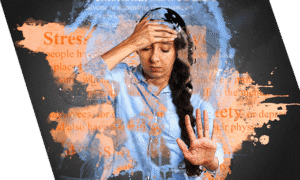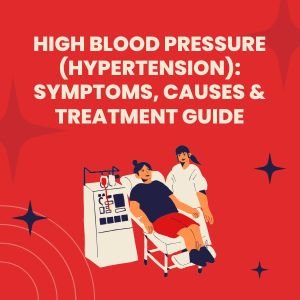How to Reduce Cholesterol Without Medication Naturally
How to Reduce Cholesterol Without Medication Naturally? Here are 10 of the best ways: Focus on dietary changes, increase physical activity, and manage stress. fiber, fruits

Discover 10 proven ways to reduce cholesterol naturally without medication. High cholesterol is a major risk factor for heart disease and stroke. While medications like statins can help, many people prefer natural ways to lower cholesterol. Fortunately, research shows that diet, exercise, and lifestyle changes can significantly improve cholesterol levels.
Here are 10 science-backed strategies: How to Reduce Cholesterol Without Medication Naturally:
1. Eat More Soluble Fibre
Soluble fiber binds to cholesterol in the digestive system and removes it before it enters the bloodstream.
✅ Best sources: Oats, beans, lentils, apples, flaxseeds, and Brussels sprouts.
📌 Study: Consuming 5–10 g of soluble fiber daily can lower LDL (“bad”) cholesterol by 5–11%. (Journal of Nutrition)
2. Choose Healthy Fats (Avoid Trans & Saturated Fats)
- Good fats (mono- and polyunsaturated fats): Avocados, olive oil, nuts, and fatty fish (salmon, mackerel).
- Fats to avoid: Processed foods, fried foods, and baked goods with trans fats.
3. Exercise Regularly
- Aerobic exercise (walking, jogging, swimming) raises HDL (“good”) cholesterol.
- Strength training helps improve overall lipid profiles.
- 📌 Recommendation: 30 minutes of moderate exercise, 5 days a week.
4. Lose Excess Weight
- Even a 5–10% weight loss can improve cholesterol levels.
- Focus on whole foods and portion control.
5. Eat Omega-3 Fatty Acids
- Omega-3s reduce triglycerides and improve heart health.
- ✅ Best sources: Fatty fish (salmon, sardines), walnuts, chia seeds, and flaxseeds.
6. Limit Sugar & Refined Carbs
- High sugar intake lowers HDL and increases triglycerides.
- Avoid sugary drinks, white bread, and pastries.
7. Drink Green Tea
- Green tea contains catechins, which help lower LDL cholesterol.
- 📌 Study: Drinking 2–3 cups daily can reduce LDL by 5–6 mg/dL (American Journal of Clinical Nutrition).
8. Try Plant Sterols & Stanols
- Found in fortified foods (certain margarines, orange juice), they block cholesterol absorption.
- 📌 Effect: Can lower LDL by 10–15% when consumed at 2 g/day.
9. Quit Smoking & Limit Alcohol
- Smoking lowers HDL and damages blood vessels.
- Excess alcohol raises triglycerides—limit to 1 drink/day (women) or 2 (men).
10. Manage Stress
- Chronic stress increases LDL and triglycerides.
- Try yoga, meditation, or deep breathing exercises.
Final Thoughts
By making these diet and lifestyle changes (follow the diet chart), you can naturally lower cholesterol and improve heart health. However, if levels remain high, consult a doctor for further evaluation.
How to Reduce Cholesterol caused by stress
Chronic stress can raise LDL (“bad” cholesterol) and lower HDL (“good” cholesterol), increasing heart disease risk. Here’s how to manage it:
1. Stress-Busting Habits
- Meditate daily—just 10 minutes of mindfulness lowers cortisol (stress hormone) and improves lipid profiles.
- Exercise regularly—brisk walking, yoga, or cycling reduces stress and boosts HDL.
2. Heart-Healthy Diet
- Eat soluble fiber—oats, beans, and flaxseeds bind cholesterol in the gut.
- Choose healthy fats—Avocados, nuts, and olive oil reduce LDL.
- Avoid sugary/stress eating—Cortisol spikes cravings for processed foods that worsen cholesterol.
3. Sleep & Social Support
- Prioritise 7–9 hours of sleep. Poor sleep disrupts metabolism, raising LDL.
- Connect with loved ones—social bonding lowers stress hormones naturally.
FAQs on Lowering Cholesterol Naturally Without Medication
1. How to reduce cholesterol levels without medication?
Yes! Studies show that diet, exercise, and lifestyle changes can reduce LDL (“bad”) cholesterol by 20–30% in some cases. However, individuals with very high cholesterol or genetic conditions (like familial hypercholesterolemia) may still need medication.
2. How long does it take to lower cholesterol naturally?
Most people see improvements in 4–12 weeks with consistent changes. However, it depends on factors like diet, exercise, and genetics.
3. What are the best foods to lower cholesterol quickly?
Top cholesterol-lowering foods include:
✅ Oats & barley (soluble fibre)
✅ Fatty fish (omega-3s)
✅ Nuts (almonds, walnuts)
✅ Olive oil & avocados (healthy fats)
✅ Beans & lentils (fiber + plant protein)
4. Does coffee raise cholesterol?
Unfiltered coffee (like French press or espresso) contains diterpenes, which may slightly raise LDL. Switching to filtered coffee (drip-brewed) reduces this effect.
5. Can exercise alone lower cholesterol?
Exercise raises HDL (“good”) cholesterol and helps with weight loss, but diet is equally important for lowering LDL. A combination of both works best.
6. Are eggs bad for cholesterol?
Moderate egg consumption (up to 7 eggs per week) does not significantly raise cholesterol in most people. However, those with diabetes or high cholesterol should monitor their intake.
7. Does garlic help lower cholesterol?
Some studies suggest garlic may reduce LDL by 5–15%, but results are mixed. It’s best used as part of a heart-healthy diet, not a standalone solution.
8. Can stress affect cholesterol levels?
Yes! Chronic stress increases cortisol, which can raise LDL and triglycerides. Managing stress through meditation, yoga, or deep breathing may help.
9. Is red wine good for cholesterol?
In moderation (1 glass/day for women, 2 for men), red wine’s resveratrol may slightly raise HDL. However, excessive alcohol increases triglycerides, so balance is key.
10. When should I see a doctor about high cholesterol?
If lifestyle changes don’t improve your levels after 3–6 months, or if you have:
- Very high LDL (>190 mg/dL)
- Family history of heart disease
- Diabetes or hypertension
- Consult a doctor for further evaluation.
Final Tip:

For best results, combine multiple strategies (diet + exercise + stress management) rather than relying on just one.




